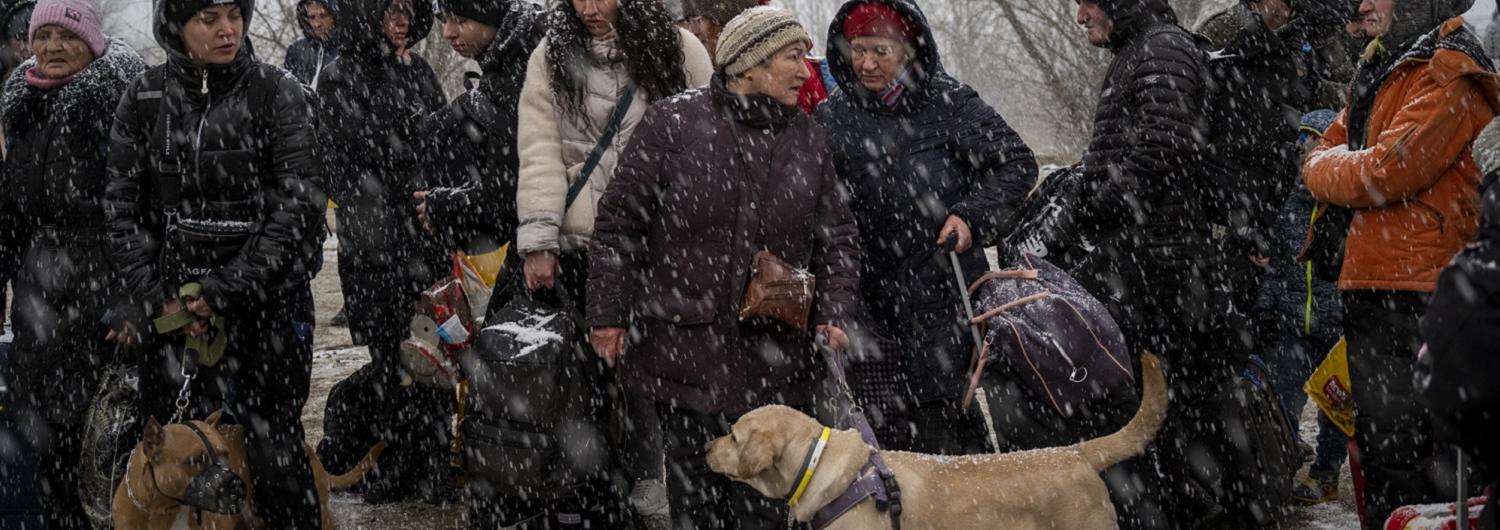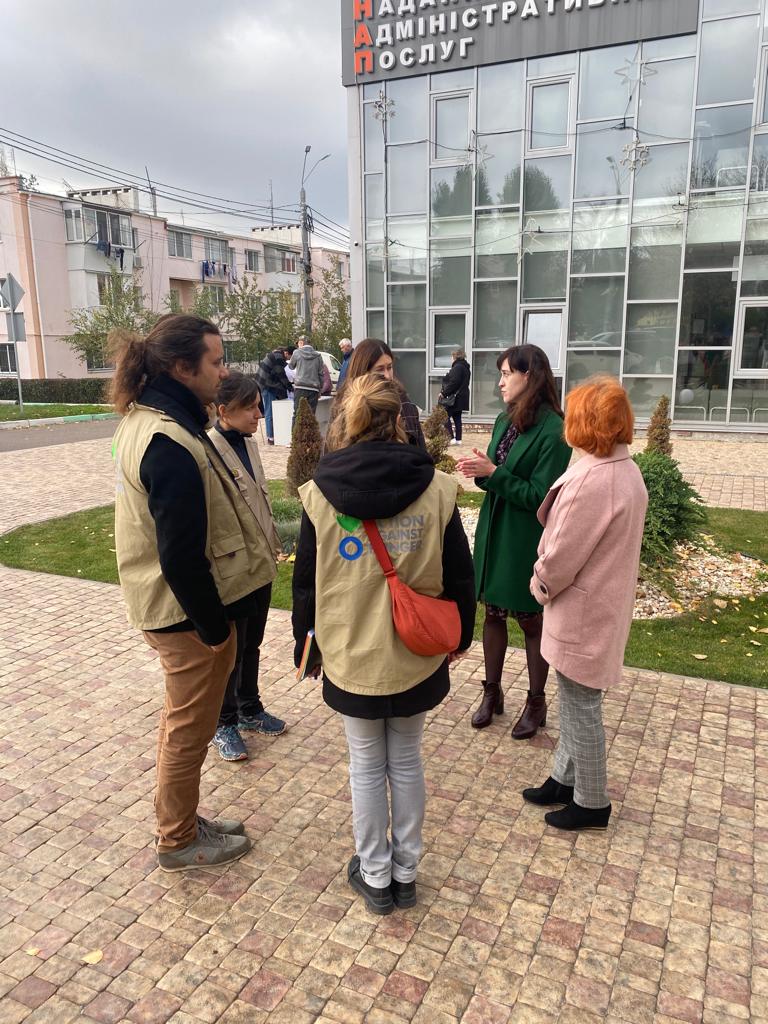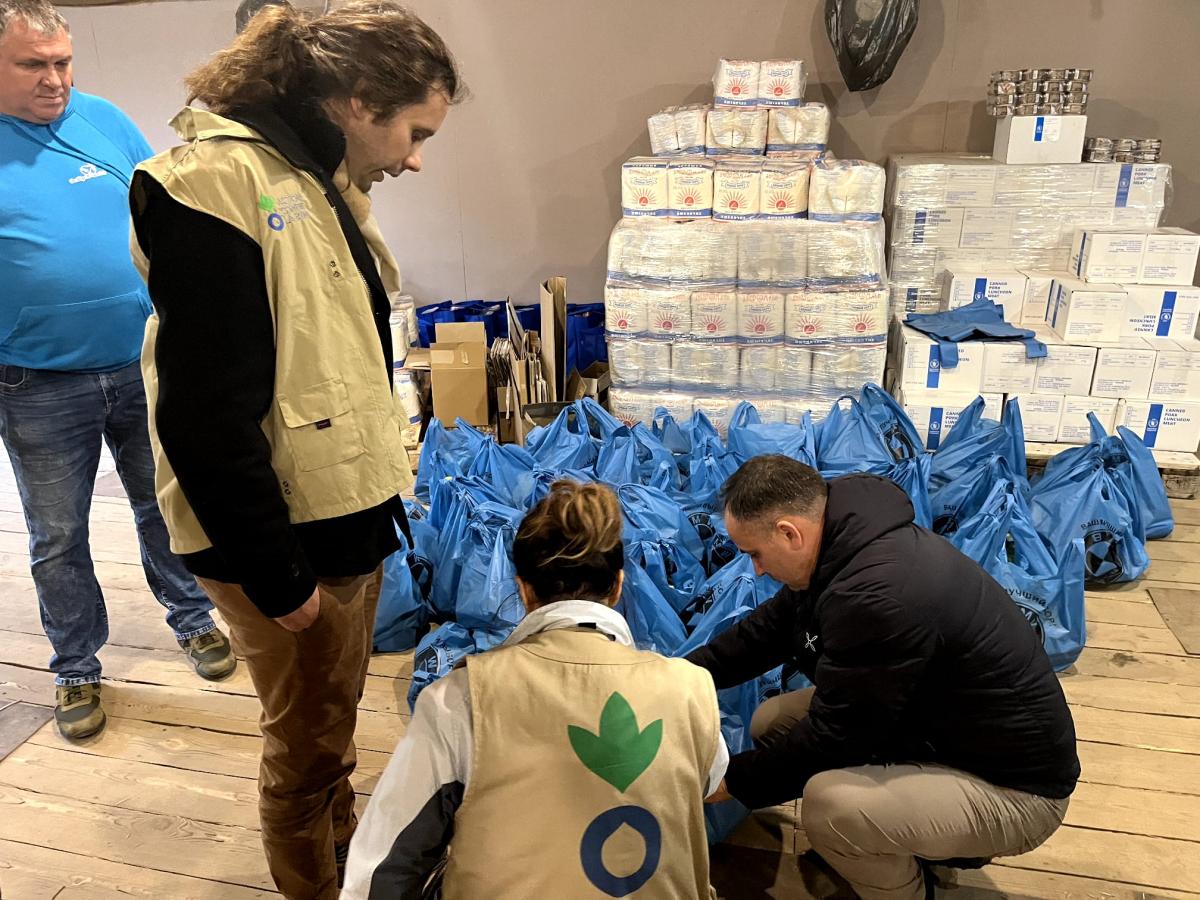News
Nearly 7 million internally displaced in Ukraine prepare for second winter since the beginning of the conflict
22/11/22

Action Against Hunger emergency team member travels to Odessa to support Moldova and Ukraine Country Offices as they work to serve displaced population and local host communities
Cover image: At the border post of Palanca, in Moldovan territory, hundreds of Ukrainian refugees face low temperatures as they wait for small buses to pick them up to take them to the reception center where they can wait for other buses that take them to the capital of the Moldovan country or directly to Romania. Palanca, Moldova. 8 March 2022. © Gonzalo Höhr for Action Against Hunger
The conflict in Ukraine continues. Since its start on 24 February 2022, military action in the north, south and east of the country, including major population centres such as Kiev, Kharkiv, Odessa and Mariupol, has caused massive displacements of people, widespread damage to infrastructure and significant disruption of essential services. More than 16,000 civilians have been killed, according to the UN Office of the High Commissioner for Human Rights (OHCHR). The United Nations alerts that the numbers could be considerably higher.
The situation could worsen as winter approaches and temperatures decrease dramatically in a country that reaches lows of about minus 10 degrees. According to the International Organization for Migration (IOM), there are 6,975,000 internally displaced people (IDPs) throughout the country. In addition to the IDPs requiring urgent support, there is an additional population of approximately 12 million people in areas directly under conflict that also require immediate humanitarian assistance. This has created needs for both IDPs and host communities.
A member of Action Against Hunger Emergency Team traveled to Odessa to support the efforts of the Moldova Country Office, in conjunction and in partnership with Ukraine Country Office, to assess the situation and needs and prepare a response plan for the next six months.
Half of Odessa's population, 500,000 people, left the city at the beginning of the conflict. 200,000 have since returned, while some 400 people from other war-torn areas of the country arrive in Odessa every day. According to data of October from the UN Office for the Coordination of Humanitarian Affairs (OCHA), there are 120,941 internally displaced people in Odessa, and the Ukrainian government expects 50,000 people to arrive due to winter and power cuts.
In Mykolaiv, some 130 kilometres north-east of Odessa, there are 104,139 IDPs. It is a region that since the beginning of the war became a front line of the conflict and which Action Against Hunger is supporting remotely because of the limitations of movement for humanitarian workers. Other factors hampering work are fuel and water shortages, the presence of mines, disruptions to basic services and restrictions on movement also for civilians.
Inna, a Ukrainian from the Mykolaiv region who travelled with her family to Velykodolynske, near Odessa, tells the Action Against Hunger team about her experience: "When the war started, our family had to leave. We left on March 19. We couldn't get our parents out until May, but now we all live in Velykodolynske." Inna shares that her greatest needs are warm clothes, hygiene products and food products, and concludes that "it is difficult to plan for the future because we do not know when the war will end, but we believe that everything will be fine."

Action Against Hunger staff visit distribution centres, local organizations helping vulnerable and internally displaced people, as well as Ukrainian coastal villages, where between 70% and 90% of the population has become unemployed, to hold meetings with mayors and civil service staff and talk to people affected by the conflict. © Action Against Hunger
Action Against Hunger, a humanitarian organization present in Ukraine and neighboring countries (Moldova, Romania, and Poland) since the beginning of the conflict, is providing a regional response that aims at supporting internally displaced, refugees and host communities. In Ukraine, to quickly start activities in Odessa and Mykolaiv, funded by the Disasters Emergency Committee (DEC), Action Against Hunger is using its warehouses in Chisinau and Stefan Voda in Moldova to transfer food kits, baby food and hygiene kits across the border at Palanca. According to conversations of the organization's staff with social services in Odessa, the number of people seeking support to obtain food has increased.


Distribution points for hot meals and firewood for the winter. © Action Against Hunger


Many Ukrainians travel regularly between Odessa and Moldova, most of whom are women, children, and elderly people. Action Against Hunger has been present in Moldova since the beginning of the conflict and continues to support the three entry points from Ukraine with the distribution of hot meals, snacks, and a team prepared for a possible increase in the migratory flow. In the picture, hot meals distributed in Palanca through Communitas. © Action Against Hunger
These cross-border operations carried out by Action Against Hunger and the local Moldovan partners, Communitas and Spanish Centre (the latter based in Ukraine), aim to respond to the most significant foreseen needs (food security and access to water, sanitation and hygiene) and are part of a preparation for a long-term presence of the organization, if evolving security conditions allow. Communitas, one of Action Against Hunger's local partners, is already distributing food and hygiene kits in Mykolaiv.